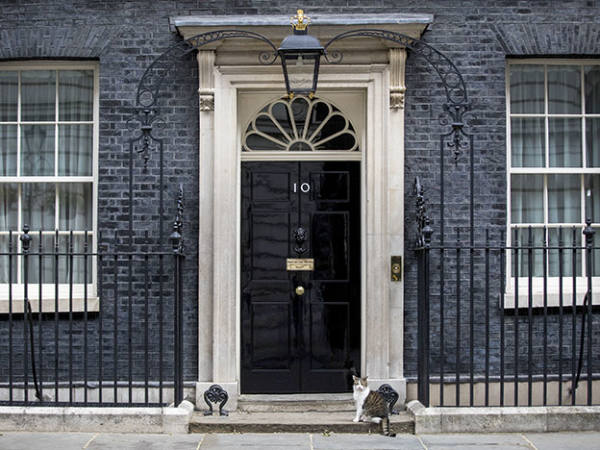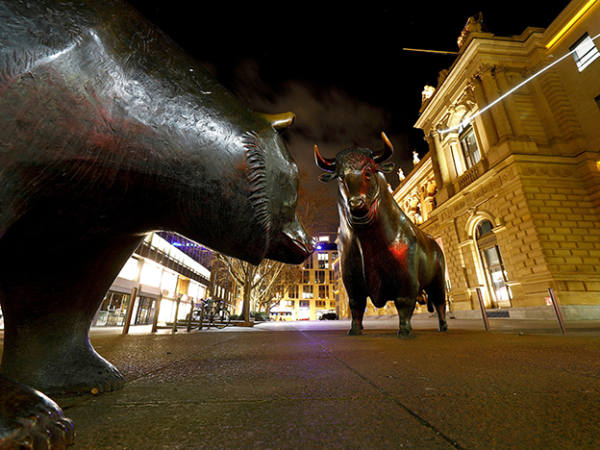- UK watchdog warns consumers of potential losses from cryptoassets
- Move comes amid heavy marketing campaigns and a surging bitcoin price
“If you’re seeing bitcoin on a bus, it’s time to buy,” says a billboard on the side of the 189 to Marble Arch. So runs one of the lines in a heavily promoted marketing campaign from Luno, a platform that lets individuals buy, sell and trade cryptocurrencies including bitcoin.
In recent weeks, similar advertising messages from the company and its rivals have adorned much of London’s public transport network, just as manic cryptocurrency buying pushed the price of bitcoin to a record £30,000, a threefold rise since October. A sharp drop this past weekend saw that correct to £24,000, in another sign of the crypto-market’s volatility.
Neither the wild price swings nor the widespread promotion of cryptocurrency speculation appears to have escaped the attention of the Financial Conduct Authority (FCA), which on Monday warned that consumers investing in high-return cryptocurrency “should be prepared to lose all their money”.
The UK watchdog outlined its concerns around the cryptocurrency market, noting the lack of consumer protection, price volatility, product complexity, high fee charges and the prevalence of firms that downplay these risks while overstating the returns of products such as bitcoin.
“The FCA is aware that some firms are offering investments in cryptoassets, or lending or investments linked to cryptoassets, that promise high returns,” said the regulator. “Investing in cryptoassets, or investments and lending linked to them, generally involves taking very high risks with investors’ money.”
According to the FCA’s register of regulated entities, Luno has not been authorised to provide regulated activities and products in the UK since its licence under the Payment Services Directive was revoked in January 2019 - though the group is no longer able to apply for authorisation as none of its activities fall within regulatory oversight, according to a company representative. The FCA has confirmed the group does not fall under the scope of the crypto asset registration regime and so can continue to operate in the UK, the person added.
Luno's website also provides a warning that UK customers are not protected by the Financial Ombudsman Service or the Financial Services Compensation Scheme, which do not cover crypto-asset activities, though the group has "been engaging with the FCA to improve protection for crypto investors as the current framework of oversight is still highly fragmented", according to the company representative.
Keith Richards, chief executive of the Personal Finance Society, said that crypto speculators “should only proceed if they are comfortable investing without those systems of redress”. For some, that absence of regulatory protection is a price worth paying, amid what some crypto-believers view as the debasement of fiat currency and the prospects for rising inflation in the coming years.
Its lack of stability has also attracted much attention. After the price of bitcoin collapsed in 2018 after its last major spike, many professional money managers poured scorn on the idea that cryptocurrencies had a viable position in investor portfolios.
But the idea that bitcoin may be driven by more than speculative mania – or that this mania was worth buying into – was given plenty of support in 2020. This culminated in December, when UK fund manager Ruffer Investment Management revealed that it had placed a bet on bitcoin worth £550m – then equivalent to less than 3 per cent of its assets under management – in a break with its normally staid and conservative investment style.
None of this is likely to abate regulators’ concerns that the wealth of many individuals is now far more exposed to the price gyrations of cryptocurrencies. Removing the highest-risk exposures to this market helps to explain the FCA’s ban on the sale of cryptocurrency-linked derivatives and exchange-traded notes to retail investors, which came into effect on 6 January.
Others are worried that major marketing campaigns for buying cryptocurrency creates an equivalence between high-risk speculation and traditional asset classes in the minds of investors. “If you haven’t got a stocks and shares Isa, then you should seriously stop and consider whether you should be investing in bitcoin,” added Laith Khalaf, a financial analyst at retail investment platform AJ Bell.










